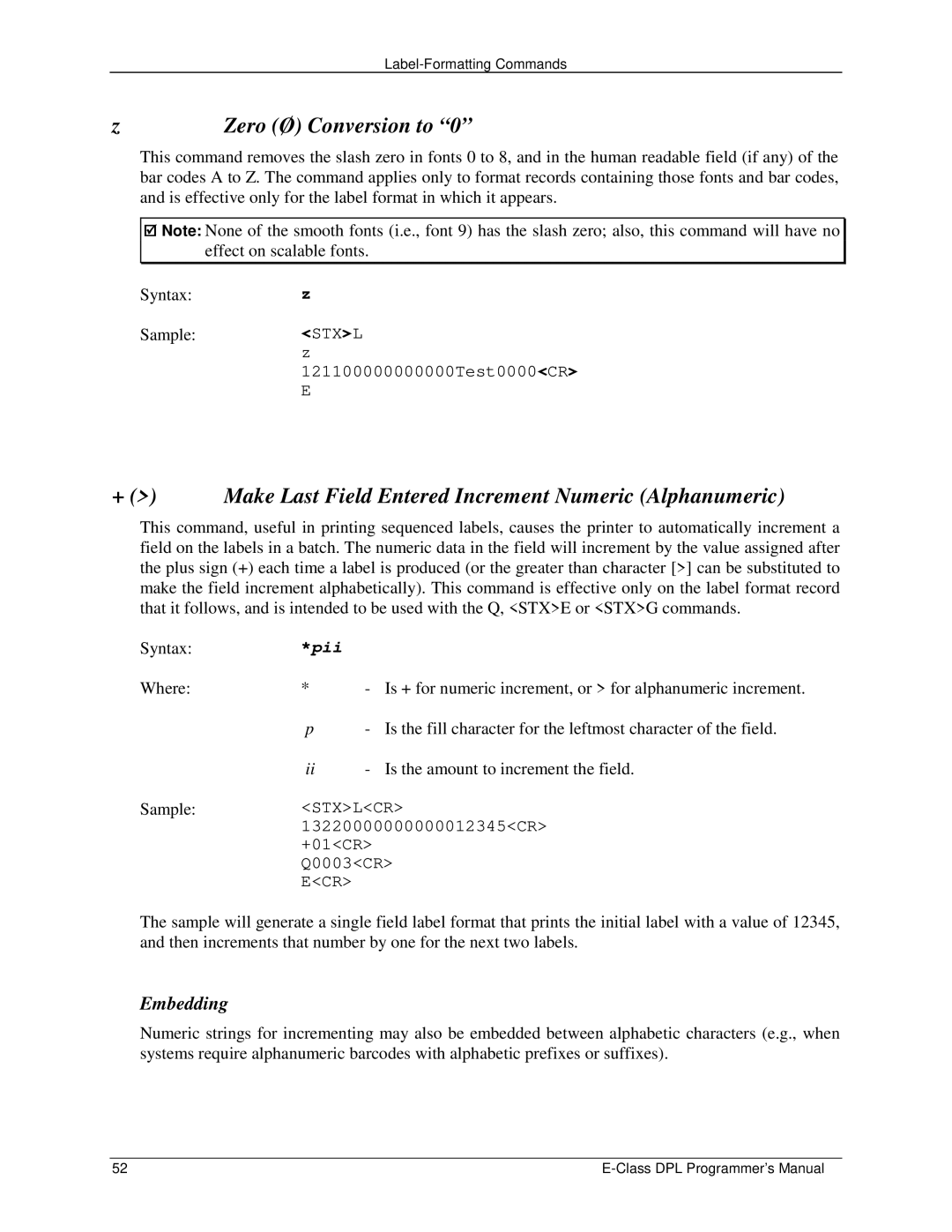
z | Zero (Ø) Conversion to “0” |
This command removes the slash zero in fonts 0 to 8, and in the human readable field (if any) of the bar codes A to Z. The command applies only to format records containing those fonts and bar codes, and is effective only for the label format in which it appears.
Note: None of the smooth fonts (i.e., font 9) has the slash zero; also, this command will have no effect on scalable fonts.
Syntax:
Sample:
z
<STX>L z 121100000000000Test0000<CR>
E
+ (>) Make Last Field Entered Increment Numeric (Alphanumeric)
This command, useful in printing sequenced labels, causes the printer to automatically increment a field on the labels in a batch. The numeric data in the field will increment by the value assigned after the plus sign (+) each time a label is produced (or the greater than character [>] can be substituted to make the field increment alphabetically). This command is effective only on the label format record that it follows, and is intended to be used with the Q, <STX>E or <STX>G commands.
Syntax:
Where:
Sample:
*pii
*- Is + for numeric increment, or > for alphanumeric increment.
p- Is the fill character for the leftmost character of the field.
ii- Is the amount to increment the field.
<STX>L<CR>
13220000000000012345<CR>
+01<CR>
Q0003<CR>
E<CR>
The sample will generate a single field label format that prints the initial label with a value of 12345, and then increments that number by one for the next two labels.
Embedding
Numeric strings for incrementing may also be embedded between alphabetic characters (e.g., when systems require alphanumeric barcodes with alphabetic prefixes or suffixes).
52 |
